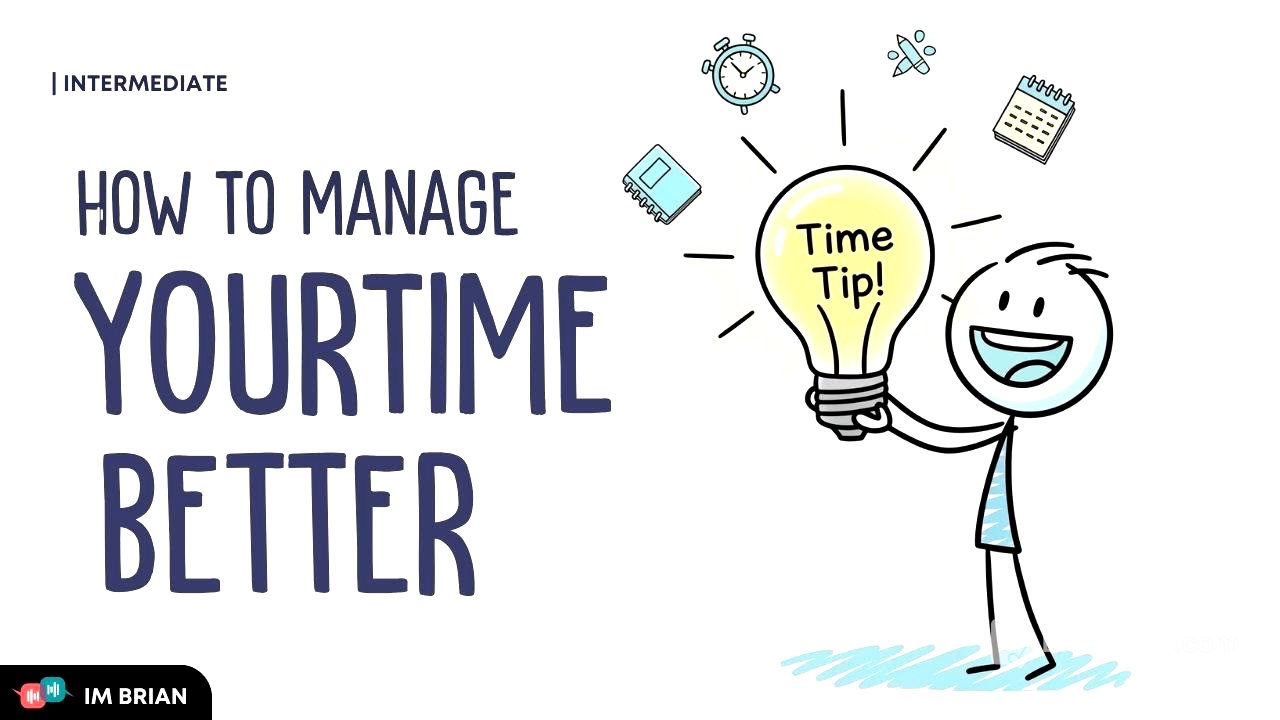TLDR;
This episode of "English on the Go" discusses effective time management strategies. It addresses common challenges such as procrastination, distractions, and feeling overwhelmed, and offers practical solutions like time blocking, to-do lists, and the Pomodoro Technique. The speakers emphasize the importance of understanding personal habits, managing energy levels, setting boundaries, and adopting a trial-and-error approach to find what works best individually.
- Time management is about understanding personal habits, energy, and priorities.
- Small changes can make a big impact.
- Trial and error is a natural part of time management.
Intro: Why is time management so hard? [0:00]
The host, Brian, introduces the topic of time management, highlighting its importance for students, professionals, and anyone trying to balance life's demands. He notes that while planning and using time wisely seems simple, many people struggle with procrastination, distractions, and overcommitment. Brian mentions that the episode will include a conversation with Sarah and Jason about the difficulties of time management and practical tips for improvement.
Warm-up questions to reflect on your own habits [1:05]
Brian poses several questions to encourage listeners to reflect on their time management habits. These questions include whether they frequently complete tasks on time, what typically wastes their time, how they plan their day, their preference for to-do lists versus going with the flow, and any time management tips that have worked for them. The aim is to prime the audience to consider their own practices before diving into the discussion.
Common struggles: Procrastination, distractions, and overwhelm [1:35]
Sarah and Jason share their struggles with time management. Sarah mentions feeling overwhelmed by long to-do lists, which paralyzes her. Jason admits to procrastinating by indulging in distractions like YouTube videos, leading to last-minute rushes. Both acknowledge the challenge of staying focused, with constant interruptions from notifications and the temptation to engage in less important tasks to avoid bigger ones. They also discuss the cycle of burning the candle at both ends, leading to exhaustion and decreased motivation.
Helpful strategies: Time blocking, to-do lists, Pomodoro, and more [5:54]
The speakers discuss effective time management strategies. Sarah finds it helpful to break down large tasks into smaller, manageable steps to avoid feeling overwhelmed. Jason has been using the Pomodoro Technique, which involves working in 25-minute intervals with short breaks in between, to maintain focus. They also emphasize the importance of scheduling important tasks for when energy levels are highest, allocating specific times for activities like checking email, and using tools like paper planners to stay organized.
Lessons learned: Energy, boundaries, and trial and error [9:49]
Sarah and Jason share key lessons they've learned about time management. Sarah emphasizes that finding the right approach involves trial and error and that there's no one-size-fits-all solution. Jason highlights the importance of managing energy levels and listening to the body's needs, rather than just focusing on schedules. They both stress the significance of setting boundaries, saying no to unnecessary commitments, and using tools that genuinely aid productivity.
Key takeaways & Wrap-up + How to download the free PDF [13:23]
Brian summarizes the key takeaways from the episode, emphasizing that time management is about understanding personal habits, energy levels, and priorities. He reiterates that small changes can have a significant impact and that trial and error is a natural part of the process. Listeners are reminded to download the free PDF vocabulary list and encouraged to subscribe for more episodes. The episode concludes with a reminder to make the 24 hours in a day meaningful.









